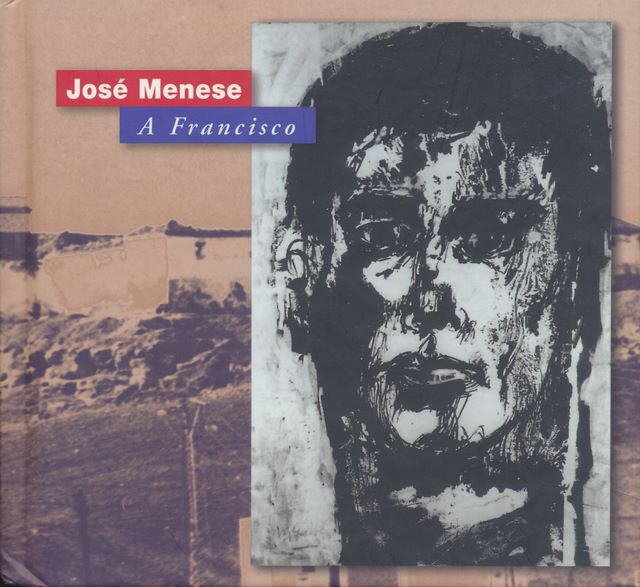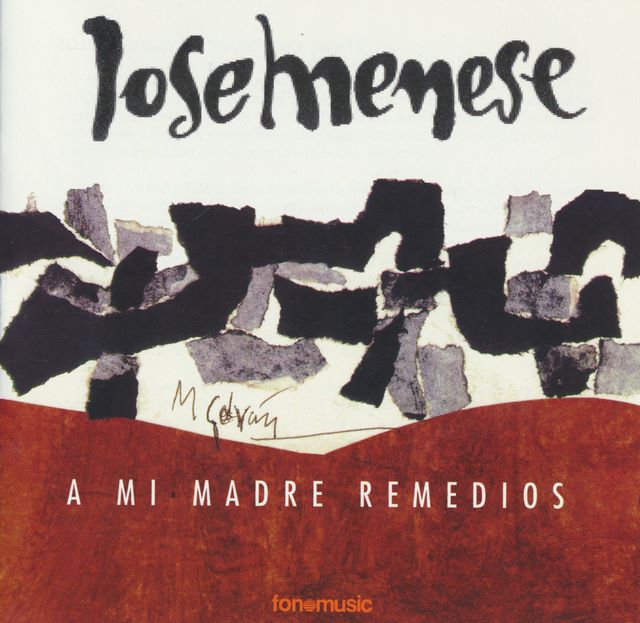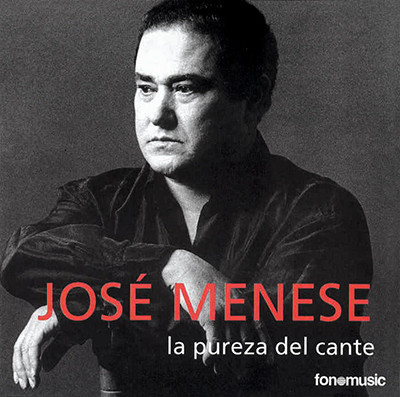It was in the summer of 2016 when the great cantaor José Menese said goodbye to us at 74 years of age. With this, as with other greats, the legend was born. And not just any one: that of an artist who knew how to delve into both the purity of the genre and the roots of the social meaning of flamenco in its origin.
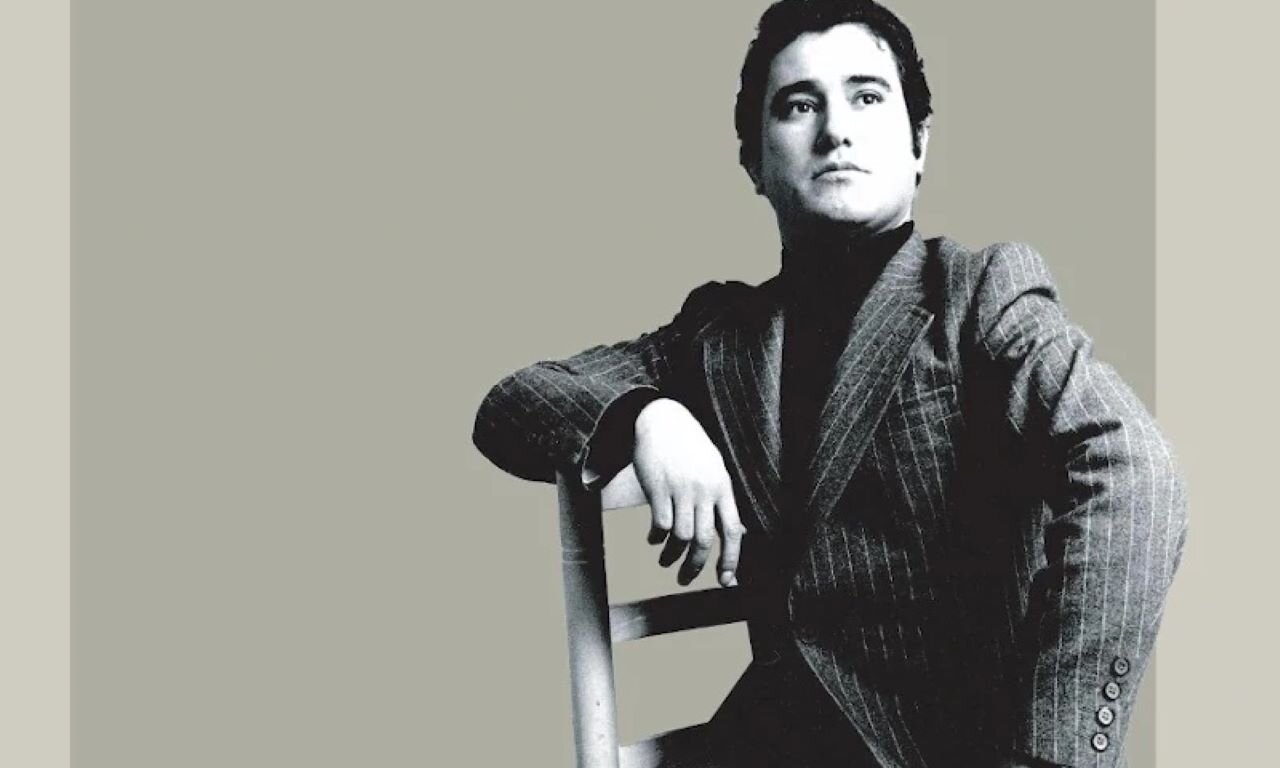
José Menese Scott, an outstanding exponent of flamenco singing in the twentieth and early twenty-first century, maintained an unwavering dedication to the orthodoxy of the genre, without deviating one iota from the tradition and canons that govern it. He considered himself a Mairenist.
His other facet was his commitment to social justice and his stance against Francoism through his concerts and his lyrics, written for many years by Galván.
A young José Menese
Born in La Puebla de Cazalla, Seville, in 1942, his life was marked by an innate passion for flamenco. From the early age of 8 he already displayed a natural talent that led him to perform in local festivals and theaters of his town. It was the painter Francisco Moreno Galván, later, the author of almost all the lyrics of his songs, his discoverer.
But Mairena, his other “father”, would arrive. The year was 1959. After having performed in the local theaters of La Puebla and in the iconic Café Central, he had the opportunity to debut at the Cine Carretería de Osuna, where the great Antonio Mairena was in charge of presenting him.
Thanks to this, from 1963 to 1968, he became a pillar of the tablao Zambra (Madrid), along with other great artists such as Pericón de Cádiz, Perico el del Lunar, Rafael Romero, Juan Varea and Rosa Durán.
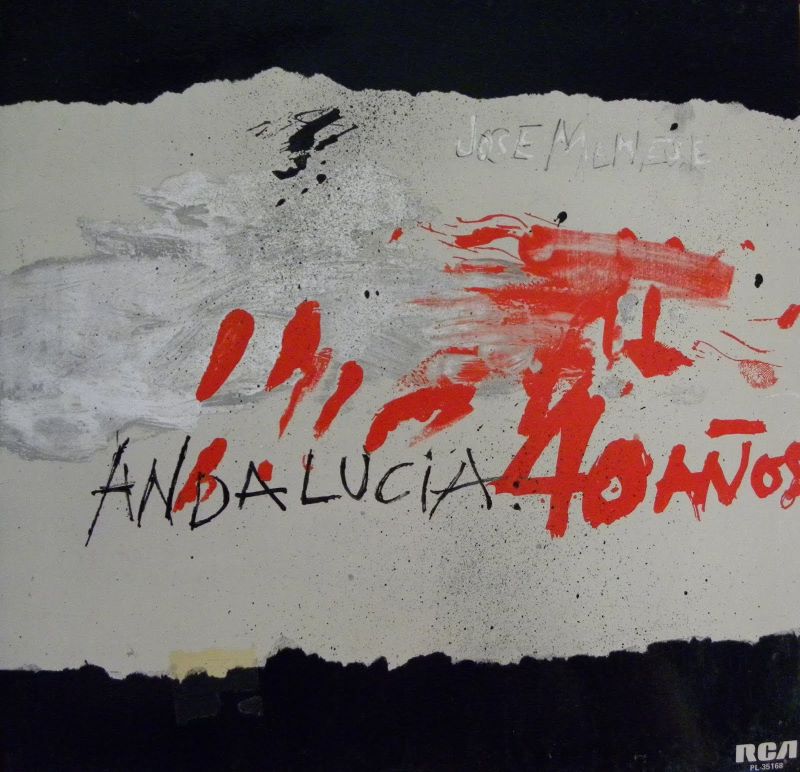
José Menese himself would say of this 1978 album: “As I received continuous criticism from my colleagues and the world of flamenco for having committed myself to singing for freedom, I wanted to show that José Menese is not silenced by anyone, neither for money nor for anything, and that is why now I have continued talking about what I had to talk about without cutting myself for anything”.
“When I was a nineteen-year-old kid, I toured all the tablaos in Madrid with a series of artists and colleagues. There was one of those tablaos that I was especially infatuated with the Zambra. It was a world that attracted me because it led me to know a pattern of seriousness that I have never abandoned since”, in a 2005, interview in La Dinamo.
Menese’s music spread beyond Spain, and he was able to show his voice in a German short film whose response was overwhelming. Menese’s music spread beyond Spain, and he was able to show his voice in a German short film whose response was overwhelming.
As a sign of his vocation, in 1967 José Menese created the Meetings of Cante Jondo, a sacred place where he could share the art of cante. That year was also when he became engaged to Encarnación Gil, and a couple of years later he would be named “Famoso” of Seville.
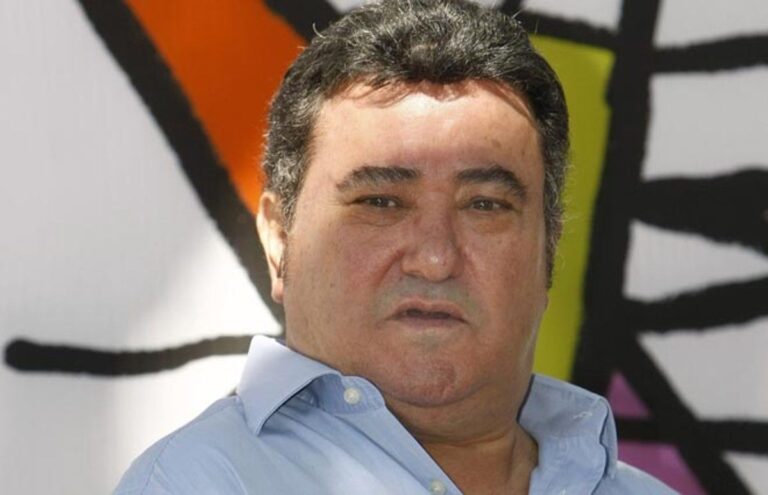
BIO
Where were you born?
La Puebla de Cazalla, Seville (Andalusia)
Family
Son of a shoemaker and a housewife. No family linked to flamenco
He was the fourth of nine children.
Wife: Encarnación Gil. Had 5 children
Birth – death
3 December 1942-29 July 2016 (also in La Puebla de Cazalla)
Legend on stage
In the ’70s, Paris surrendered to Menese’s passion at the Iberian Song Festival. Echoes of his singing echoed at the iconic Olympia in 1973 and 1974. He was the first flamenco singer to perform at the Olympia in Paris.
But it was in 1974 when Madrid officially welcomed him at the Marquina Theater, accompanied by the virtuoso chords of Manolo Brenes and the beat of Paco Valdepeñas. Also very well received at the Teatro Barceló in Madrid. And Barcelona also succumbed to his art at the Palau de la Música and the Juana Mordó Gallery.
In 1975, Madrid had the honor of witnessing José Menese on the majestic stage of the Teatro Real, where his singing was intertwined with the Spanish Radio and Television Orchestra. He sang under the magical baton of Odón Alonso, in an interlude to Falla’s “La Vida Breve”.
Very international
Back in international lands, in 1985, New York enjoyed him with the National Orchestra and Choir of Spain, performing in the United Nations Day Concert. Enrique de Melchor contributed his genius to the guitar, leaving an unforgettable memory.
He conquered Paris in 1991, in the Auditorium of the Cervantes Institute, where he gave a Tribute Concert to Manuel de Falla. The scene was filled with emotion and art, sharing the stage with Carmen Linares.
He returned to Spain and his voice resounded in the majestic Teatro Monumental in Madrid, an unforgettable concert with Carmen Linares and Manuel Morao, which Radio Clásica captured for posterity at the Euro-Radio Festival 1994: “Christmas in Europe”.
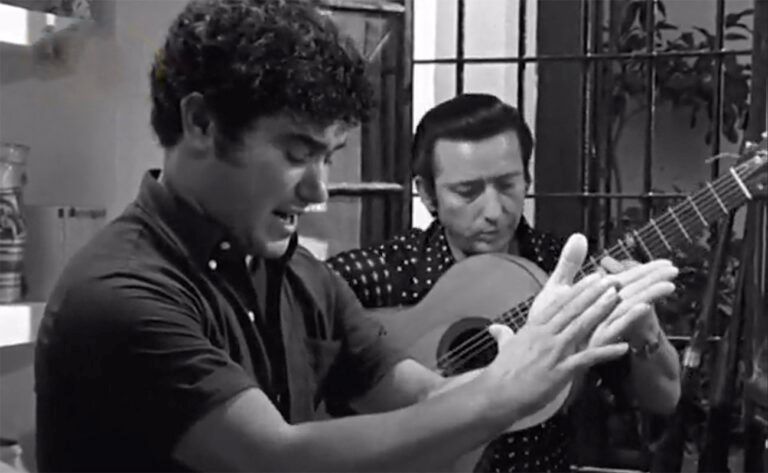
Programa de RTVE dedicado a José Menese
José Menese: first recordings
The first album of José Menese (1963), with lyrics written by Francisco Moreno Galván of great political significance, marked the beginning of an artistic career that would soon garner significant recognition. His committed approach to social issues, which permeated all his future works, was awarded the prestigious National Record Prize awarded by the Chair of Flamencology and Andalusian Folkloric Studies of Jerez de la Frontera.
His committed approach to social issues, which permeated all his future works, was awarded the prestigious National Record Prize awarded by the Chair of Flamencology and Andalusian Folkloric Studies of Jerez de la Frontera. This achievement marked a turning point in his career, consolidating him as one of the most outstanding figures in Andalusian festivals.
The ultimate fame
With the year 1997, came two of the most prestigious awards in the world of flamenco. His outstanding contribution to the genre was highlighted with the “Calle de Alcalá Flamenco Award”, awarded by the Caja de Madrid Flamenco Festival, and the recognition as “Patriarch of Cante” at the Flamenco Summit of Murcia.
In September of that same year, José Menese presented “A mi madre Remedios”. The chosen scenario was the Cuartel del Conde Duque, within the programming of the Veranos de la Villa, an event sponsored by the City Council of Madrid. Enrique de Melchor contributed his chords to the guitar, and the event had the special participation of Chano Lobato and Juan Carmona “Habichuela”.
Shortly after, José Menese joined the cast of “La Vida Breve”, a masterpiece by Manuel de Falla that, under the direction of Maestro García Navarro, inaugurated with great splendor the stage of the Teatro Real in Madrid. During that same month, he participated in the flamenco cycle of the prestigious Autumn Festival of Madrid, leaving an indelible mark on the public.
The poet Rafael Alberti would say of him: “His voice is solemn, it has sap because it has trunk and deep roots.”
His legacy
In 2016, he passed away in the same land that saw him grow up, a return to his roots that will always make him part of the history of that beloved place. Over the years, José Menese, a non-gypsy who sang as if he were, has proven to be a true ambassador of flamenco, and his voice continues to move audiences around the world. His cantes por soleares and seguidiyas are still emblematic.
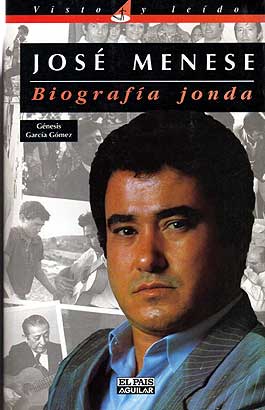
José Menese, biografía jonda", de Génesis García Gómez.
“Firm I stand, firm until death. I confirm and affirm, that I will not change (…). When he dies they will always say: he died, but he was firm“. Cante de Menese, in José Menese with Enrique Melchor, 1995.
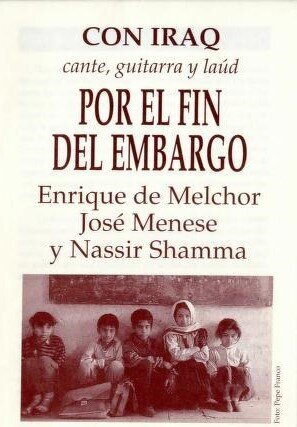
Hasta su muerte, fue un artista muy comprometido.
Discography
- 1963 – José Menese
- 1964 – Saetas
- 1964 – José Menese
- 1965 – José Menese
- 1965 – Cantes de José Menese
- 1967 – José Menese
- 1967 – Cantes flamencos básicos
- 1968 – Menese
- 1969 – La Mariana
- 1970 – Saetas de oro
- 1970 – Renuevos cantes viejos
- 1971 – Cuando llegará el momento
- 1971 – Romance de Juan García
- 1971 – Cantes para el hombre nuevo
- 1974 – Los que pisan la tierra
- 1975 – Theâtre de l’Olympia
- 1975 – Soleares del que nunca fue a Granada
- 1975 – Festival flamenco gitano, vol. 2
- 1976 – La palabra
- 1978 – Andalucía 40 años
- 1981 – Mi cante a la esperanza
- 1982 – Ama todo cuanto vive
- 1985 – Cantes de ida y vuelta
- 1987 – Puerta Ronda
- 1990 – Les voix d’Itxassou (Tony Coe, José Menese canta «Hasta siempre, comandante»)
- 1993 – El viento solano
- 1994 – Arte flamenco
- 1995 – Recital Teatro Albéniz, 30 años de cante
- 1995 – En el Albéniz
- 1997 – El Flamenco Vive
- 1997 – A mi madre Remedios
- 2000 – A Francisco
- 2002 – La pureza del cante
- 2005 – A mis soledades voy, de mis soledades vengo
